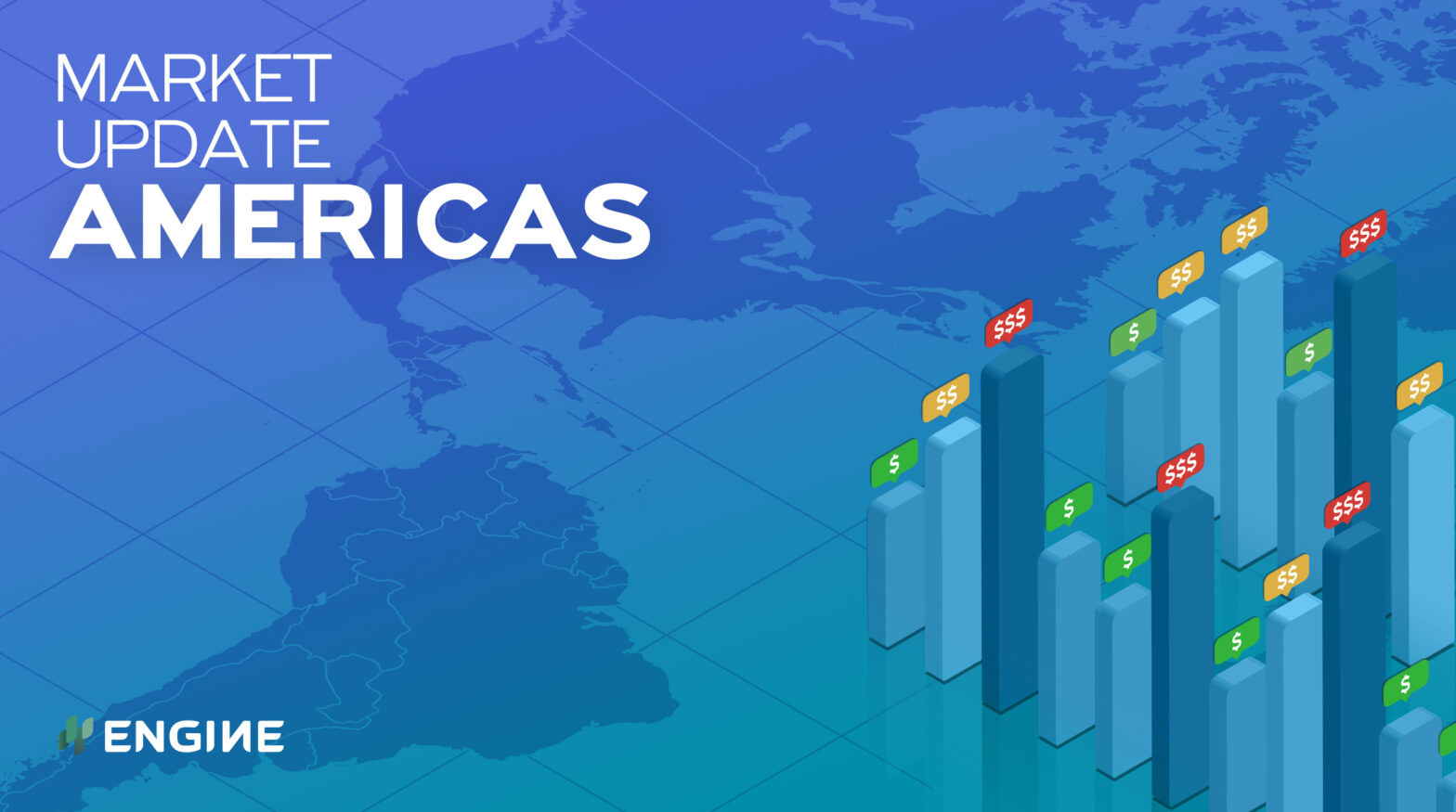Bunker prices are mostly rangebound in the Americas, but some values have tracked tumbling Brent futures further down, and others have gained to recover some of the heavy losses made in the previous session.
Changes on the day to 09.30 CST (14.30 GMT) today:
- VLSFO prices up in Zona Comun ($16/mt), Houston ($4/mt) and Los Angeles ($1/mt), and down in New York ($4/mt) and Balboa ($2/mt)
- LSMGO prices up in Los Angeles ($11/mt), Balboa ($6/mt), Zona Comun ($5/mt) and Houston ($4/mt), and down in New York ($18/mt)
- HSFO380 prices up in Los Angeles ($8/mt), Houston ($3/mt) and New York ($1/mt), and down in Balboa ($11/mt)
Los Angeles’ LSMGO price has gained to recover part of the steep $28/mt loss it made when Brent shed over $2/bbl over the weekend. But the port still has the US West Coast’s lowest price for the grade, with wide margins of $38-39/mt up to Vancouver and San Francisco.
A string of higher-priced stems have pushed Zona Comun’s VLSFO price back up to slight $2-5/mt premiums over Rio Grande and Paranagua. Santos has again moved to wider premiums of around $30/mt to these ports.
Availability tightened in Zona Comun last week, after several spells of rough weather disrupted bunkering and created backlogs. Certain suppliers are not able to deliver until two weeks out.
Tight HSFO380 supply has kept Houston’s price at higher levels than several other US and Latin American ports. Its premium over New York has gone up to $7/mt, and over Balboa to $20/mt.
Brent
Front-month ICE Brent had shed another $2.02/bbl on the day, to $72.13/bbl at 09.30 CST (14.30 GMT) today.
Demand worries have triggered a selloff in the futures contract, pulling it down by more than 4% below last Friday’s settlement level. Rapidly rising cases of the Delta Covid-19 variant in major economies, including upticks in the US and China, has weighed on the price. The prospect of another wave in China has cautioned investors in particular, as it could derail the global demand recovery.
Millions of Chinese people have been put in lockdown to contain the spread. Japan, Australia and Indonesia have extended mobility restrictions in parts of their countries, capping fuel demand.
“Crude prices plunged overnight but nowhere near the same scale as the panicked “delta-dip” a couple of weeks ago,” OANDA market analyst Jeffrey Halley said.
Slowdowns in US and Chinese manufacturing activity have also fuelled demand concerns. US manufacturing fell to six-month lows in July, while Chinese manufacturing slumped to 15-month lows.
